Professional cleaners do these 4 things to remove rust from bathtubs – here's how to replicate the results
Expert-approved tips to banish rust from your bathtub and restore the beauty of your bathroom
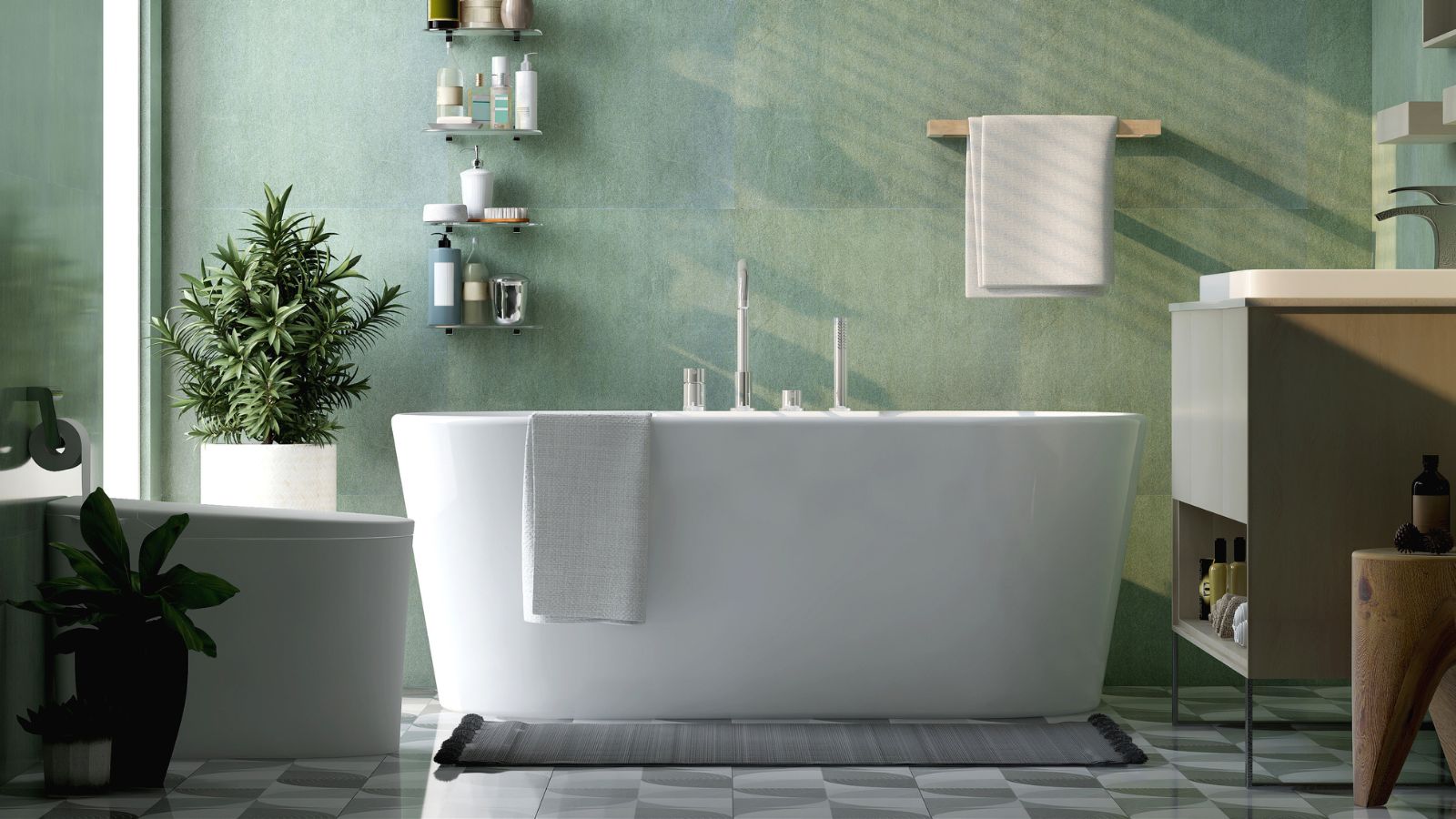

Given that water is the primary catalyst for rust, it's no surprise that bathrooms, and more specifically bathtubs, are prone to the aggressive type of corrosion.
But, once it's taken hold of your bathtub, how do you remove it without damaging expensive, delicate surfaces and fixtures?
Here, we spoke to professional cleaners for their cleaning tips on tackling rust without harsh chemicals, to remove red stains and flakes with ease.
How to remove rust from your bathtub
As Ken Doty, COO of The Maids explains, 'Rust stains in your tub can be caused by water with high iron levels, old iron plumbing or a rusty water heater,' meaning no one thing is necessarily to blame for a rusty tub.
But, no matter where the rust might be coming from, though, it can seriously damage the look of both your bathroom ideas and bathtub, making it appear dirty 24/7, warns Doty. Therefore, it's important to deal with rust promptly.
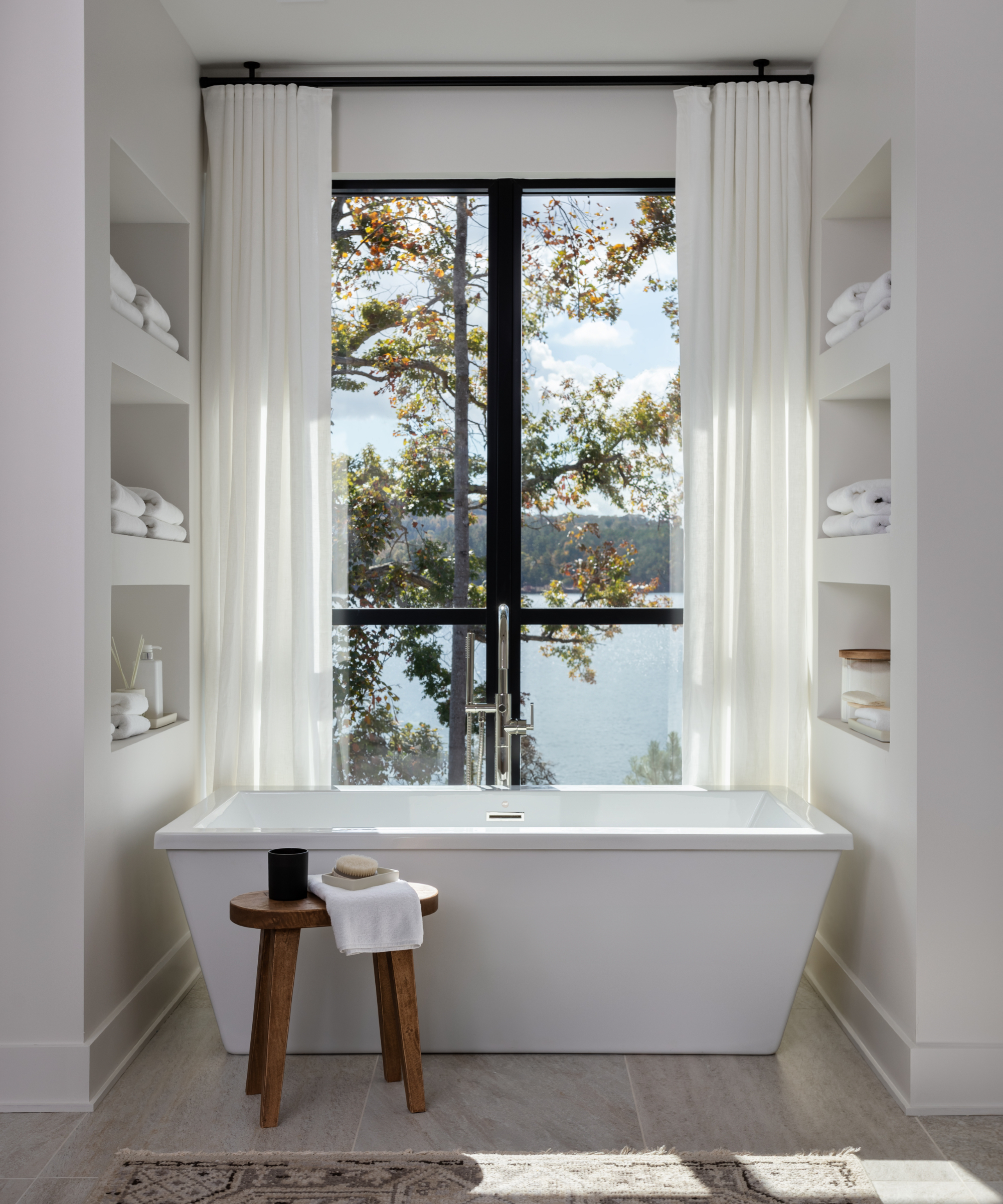
You will need:
- Baking soda: such as ARM & HAMMER Pure Baking Soda available at Walmart.
- White vinegar: such as the bestselling Great Value Distilled White Vinegar available at Walmart.
- Lemon juice
- Salt
- A non-abrasive sponge or scrubbing brush: such as the Scotch-Brite Zero Scratch Scrub Sponges available at Amazon.
- Gloves
Step 1. Make a baking soda paste
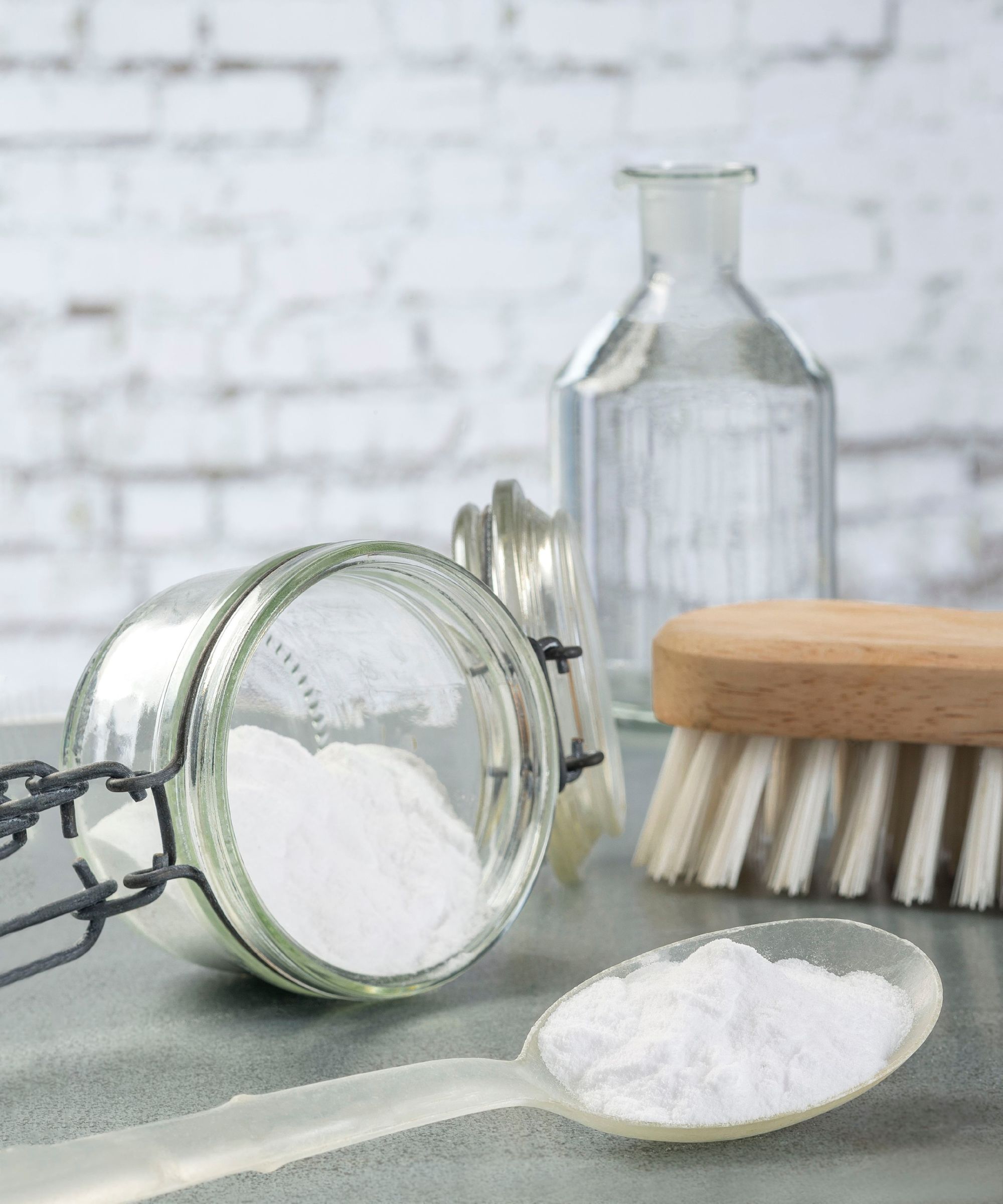
There are many things you can clean with baking soda at home, and Forrest Webber, owner of Bear Brothers Cleaning recommends using it to remove rust.
He says, 'In a basin, combine baking soda and water until a paste forms that is thick enough to adhere to those annoying rust spots.'
Then, apply the paste to the rust-affected areas.
Cleaning expert Webber says, 'Slather the paste over the rust stains, using your non-abrasive sponge or just your hands, with gloves (such as the Playtex Living Gloves available at Walmart). You want to cover it well so the baking soda can work magic.'
Step 2. Wait before scrubbing
Then, cleaning expert Webber recommends waiting 15 to 20 minutes, to give the baking soda enough time to attack the rust and loosen its grip.
Once the paste has had time to work, it's time to scrub. Webber says, 'Use gentle but firm, small, circular motions until you see the rust start to disappear.'

While you can scrub by hand using an old toothbrush or gentle brush, a powered scrubbing tool takes all the effort out, whether you are cleaning rust or freshening up grout lines.
Step 3. Rinse with vinegar
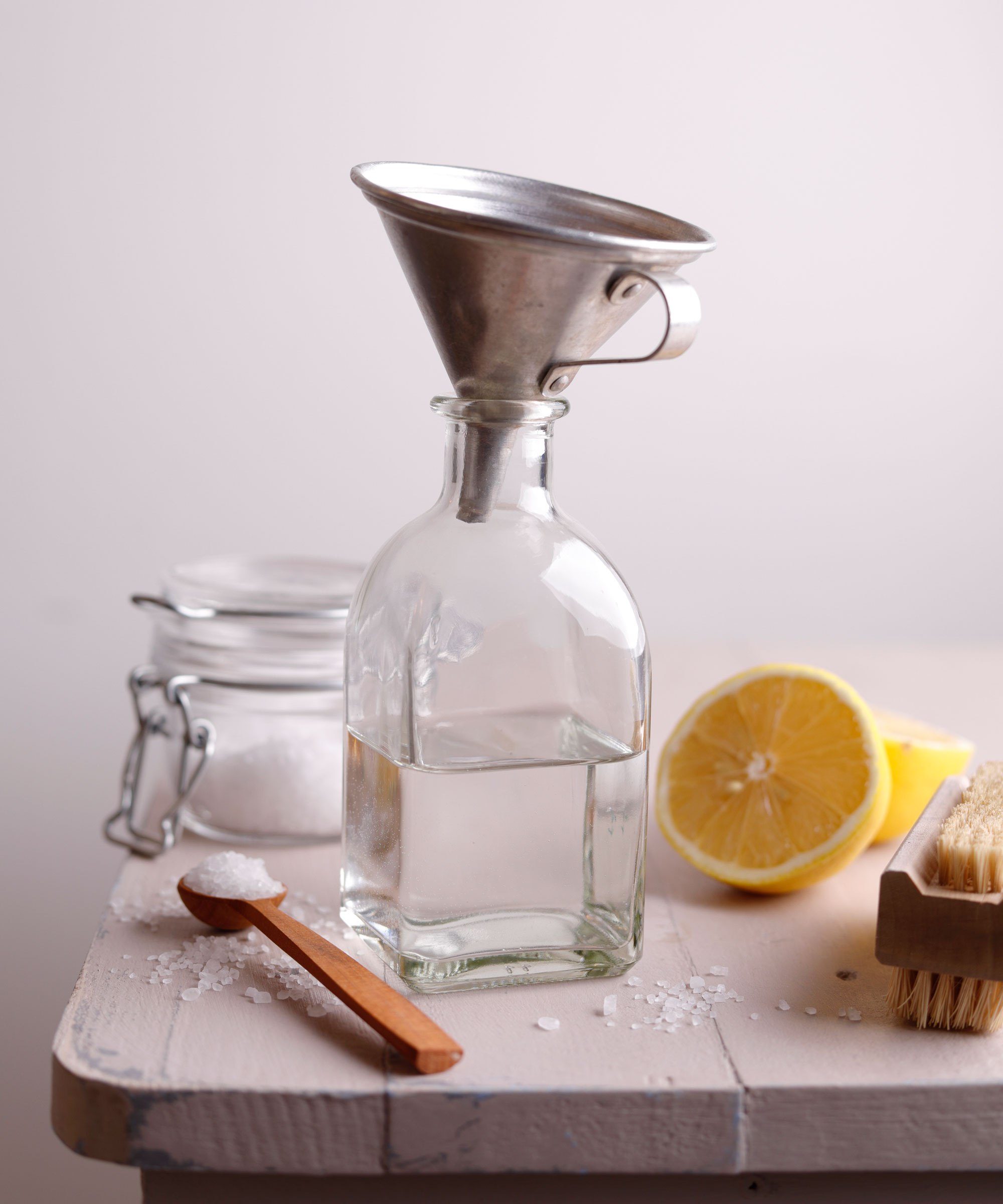
Did you know clean with vinegar is effective against rust cutting out the need for harsh chemicals?
Webber advises, 'Pour the vinegar onto the baking soda-covered rust. Let it fizz for a bit, then rinse with warm water.'
You can also clean a toilet tank with vinegar, if yours is affected by rust, mold, mildew, or hard water deposits.
Step 4. Follow up with lemon and salt
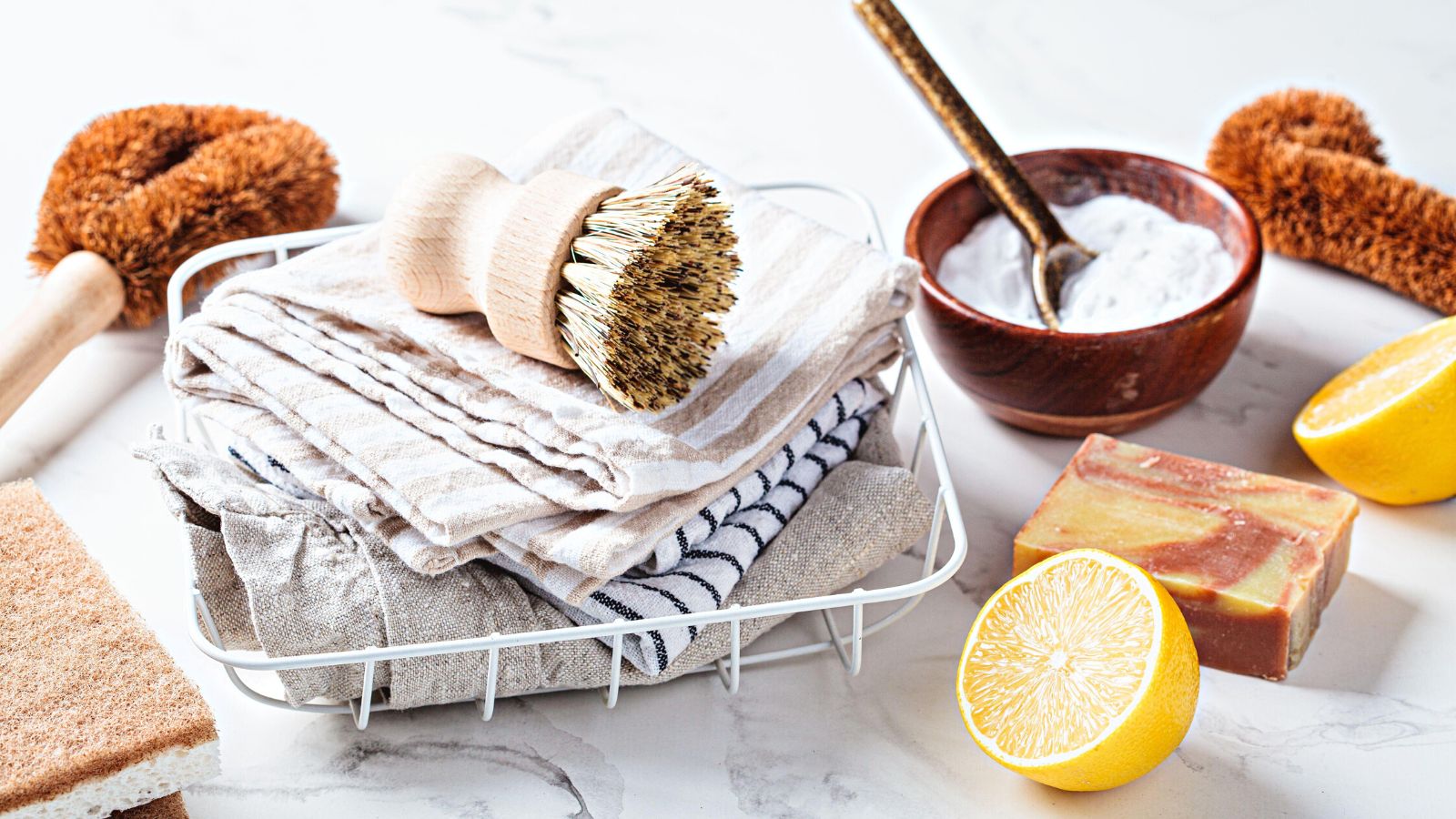
We love cleaning with lemon juice, and Webber suggests pairing the power of citric acid with salt.
He says, 'Use salt and lemon juice, the two main weapons, if your rust isn't going away. Scatter the stain with salt and then squeeze over some lemon juice. After 15 minutes of sitting, scrub.
'Not only does it work, but it also has a citrusy scent,' and is therefore a great way to make your bathroom smell fresh, too. We recommend using the Great Value Lemon 100% Juice available at Walmart, which is potent and undiluted for maximum efficacy, and the Great Value Plain Salt, also available at Walmart.
And, asides from rust, I recently also tried cleaning stubborn faucet limescale with lemon juice and was amazed at the results, and there are many other things you can clean with citric acid around the house, too.
Then, if you are still struggling to remove the rust on your bathtub, Webber recommends using Bar Keepers Friend Soft Cleanser available at Amazon, which is an effective and multi-purpose rust cleaner without harsh chemicals.
Webber says, 'It's specifically formulated to tackle tough stains, and rust won't stand a chance. Simply follow the instruction on the label – apply, scrub, rinse – it's as easy as that.
FAQs
Does WD-40 remove rust?
WD-40 is useful to get paint off glass and to get acrylic paint out of clothes, and it is also an effective way to remove rust. It's suitable for almost all surfaces, and won't further damage the surface of metals or remove paint.
To remove rust from stainless steel, remove rust from metal garden furniture, and clean rust from bathtubs, let WD-40 sit for around ten minutes, to penetrate the porous rust and allow it enough time to loosen it with lubricating properties.
How often should rust be removed from a bathtub?
In short, rust should be removed from your best bathtub at the first sign of its presence, advises Karina Toner, operations manager at Spekless.
She says, 'Rust stains should be addressed as soon as they appear to prevent them from spreading and becoming more difficult to remove. Regular maintenance every couple of weeks or at the first sign of rust will keep your bathtub (and bathroom) looking clean and well-maintained,' without damaging your bath ideas.
If you're wondering how to clean rusty tools, did you know you can clean rust with aluminium foil, no chemicals required?
All you need is a roll of foil and some warm water – and the effortless results will seriously impress you.
Sign up to the Homes & Gardens newsletter
Design expertise in your inbox – from inspiring decorating ideas and beautiful celebrity homes to practical gardening advice and shopping round-ups.

Ottilie joined Homes & Gardens last year, after finishing a Master's in Magazine Journalism at City, University of London. With previous contributions in Livingetc and Motorsport Magazine, she produces content for the Solved section on the website, focusing on clever tips and tricks to keep your home beautiful, organized and clean. She also has an undergraduate degree in English Literature and History of Art from the University of Edinburgh, where she developed a love for inspiring interiors and architecture.
-
 ‘It leads to more headaches than it's worth’ – 4 reasons you should never store things in your oven, including fire risks and serious illness
‘It leads to more headaches than it's worth’ – 4 reasons you should never store things in your oven, including fire risks and serious illnessYour oven is for cooking, and cooking only, experts urge
By Chiana Dickson
-
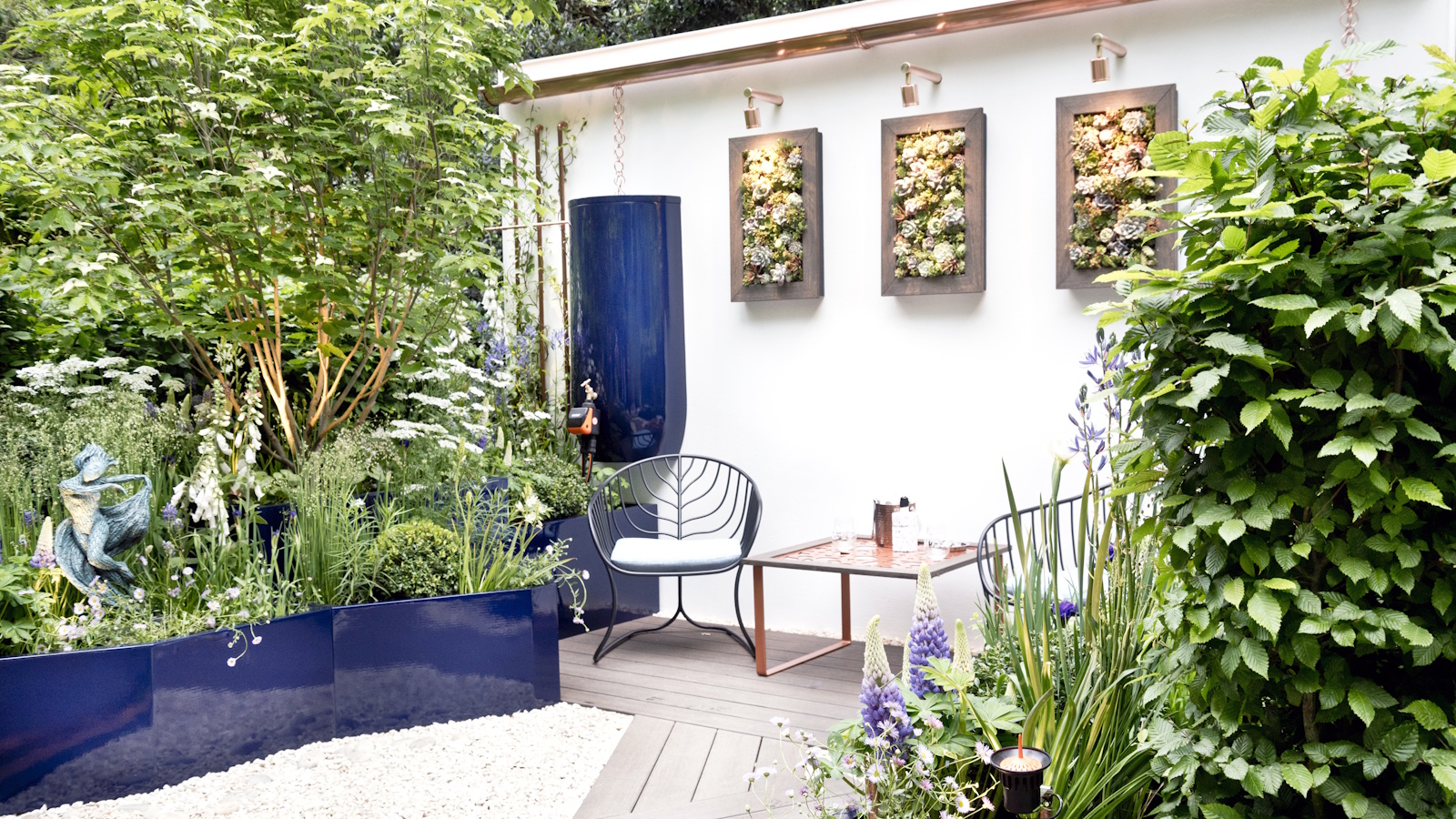 Urban gardening ideas – 7 creative ways to grow in small spaces, balconies, containers, indoors, and more
Urban gardening ideas – 7 creative ways to grow in small spaces, balconies, containers, indoors, and moreMake the most of your space with these innovative ways to garden
By Tenielle Jordison
-
 I've spent over 200 hours testing vacuums and swear by my two Dysons – this is how I properly clean a Dyson vacuum filter for longer-lasting appliances
I've spent over 200 hours testing vacuums and swear by my two Dysons – this is how I properly clean a Dyson vacuum filter for longer-lasting appliancesYour Dyson vacuum will last much longer and clean at its best
By Dan Fauzi
-
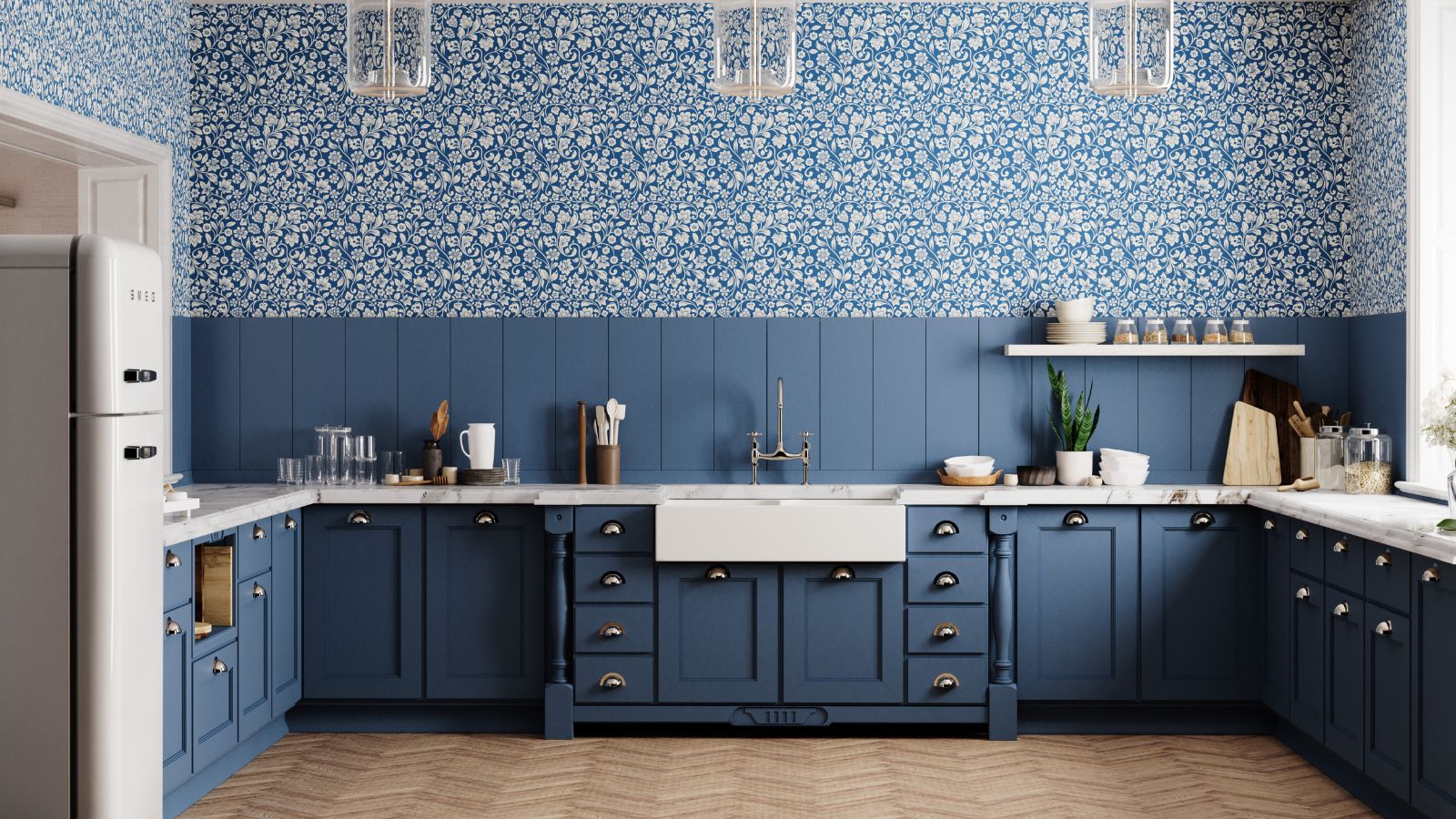 Do cleaning products expire? Professional cleaners warn time could make them ‘less effective, and in some cases, irritating to use’
Do cleaning products expire? Professional cleaners warn time could make them ‘less effective, and in some cases, irritating to use’For the best results, it pays to stay on top of the timeline of your cleaning products
By Chiana Dickson
-
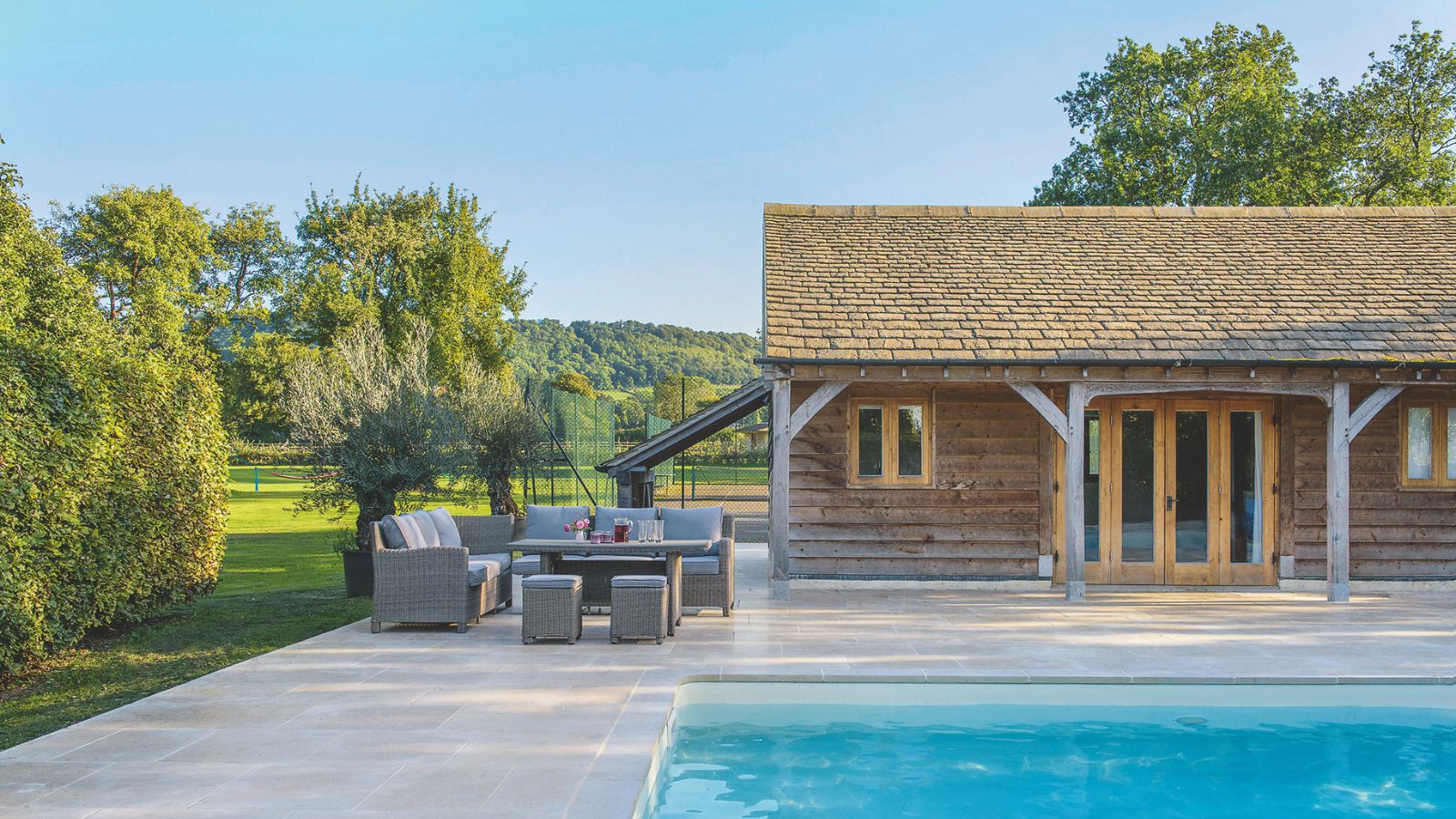 How to clean a patio – 6 different methods, and when you must use a chemical cleaning agent
How to clean a patio – 6 different methods, and when you must use a chemical cleaning agentFrom manual scrubbing, natural solutions or calling in the pros, industry experts reveal the benefits and considerations of each method
By Andy van Terheyden
-
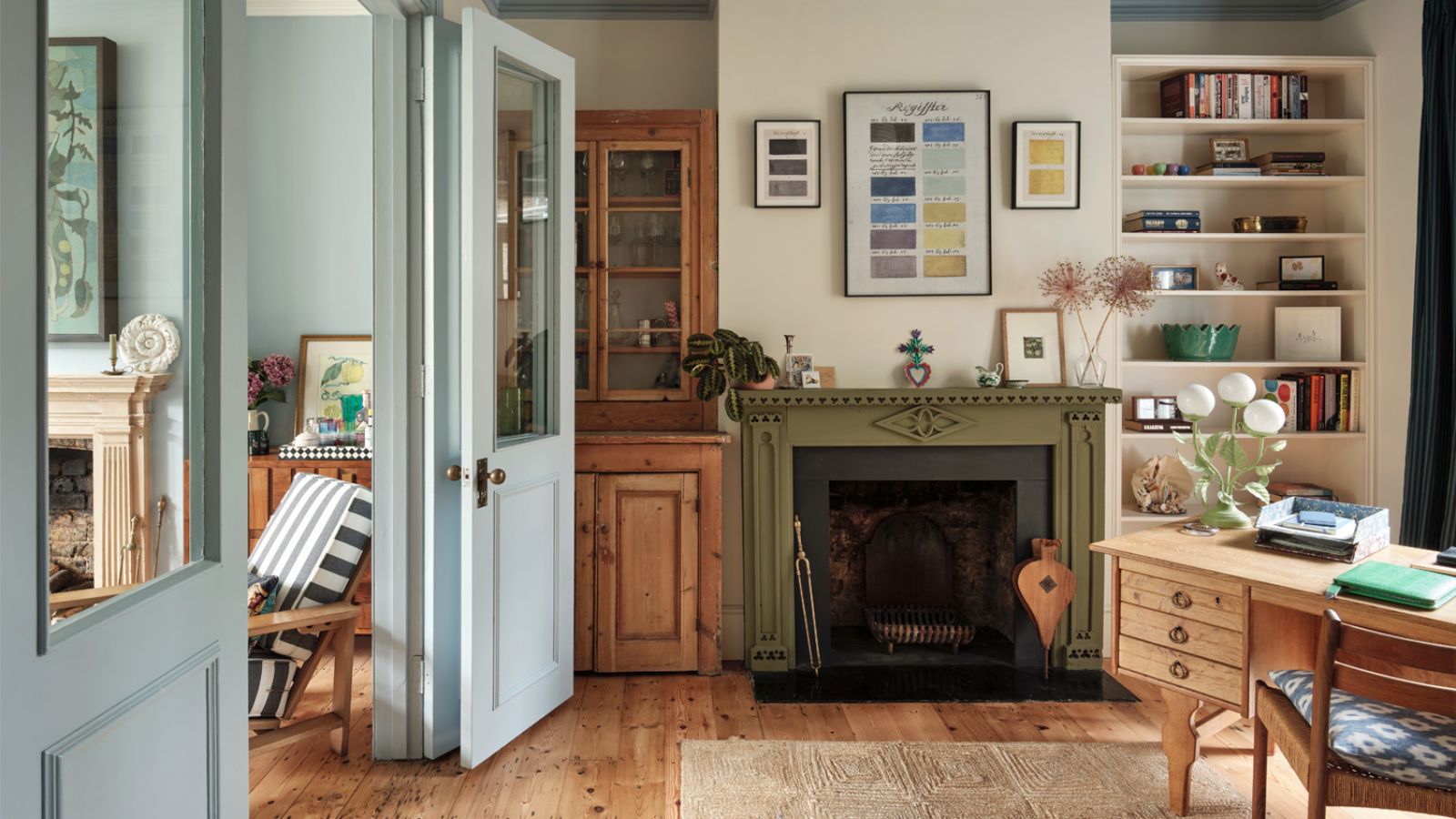 5 surprising but brilliant ways to clean with old socks – from perfectly buffing stainless steel to deterring pests naturally and more
5 surprising but brilliant ways to clean with old socks – from perfectly buffing stainless steel to deterring pests naturally and moreTackle dust in tricky corners, clean your mirrors and even banish bad odors with those rogue single socks
By Andy van Terheyden
-
 5 things people with clean upholstery always do – they're simple, quick and oh-so-effective
5 things people with clean upholstery always do – they're simple, quick and oh-so-effectiveEnsure your furnishing looks clean year-round with these expert tips
By Seraphina Di Mizzurati
-
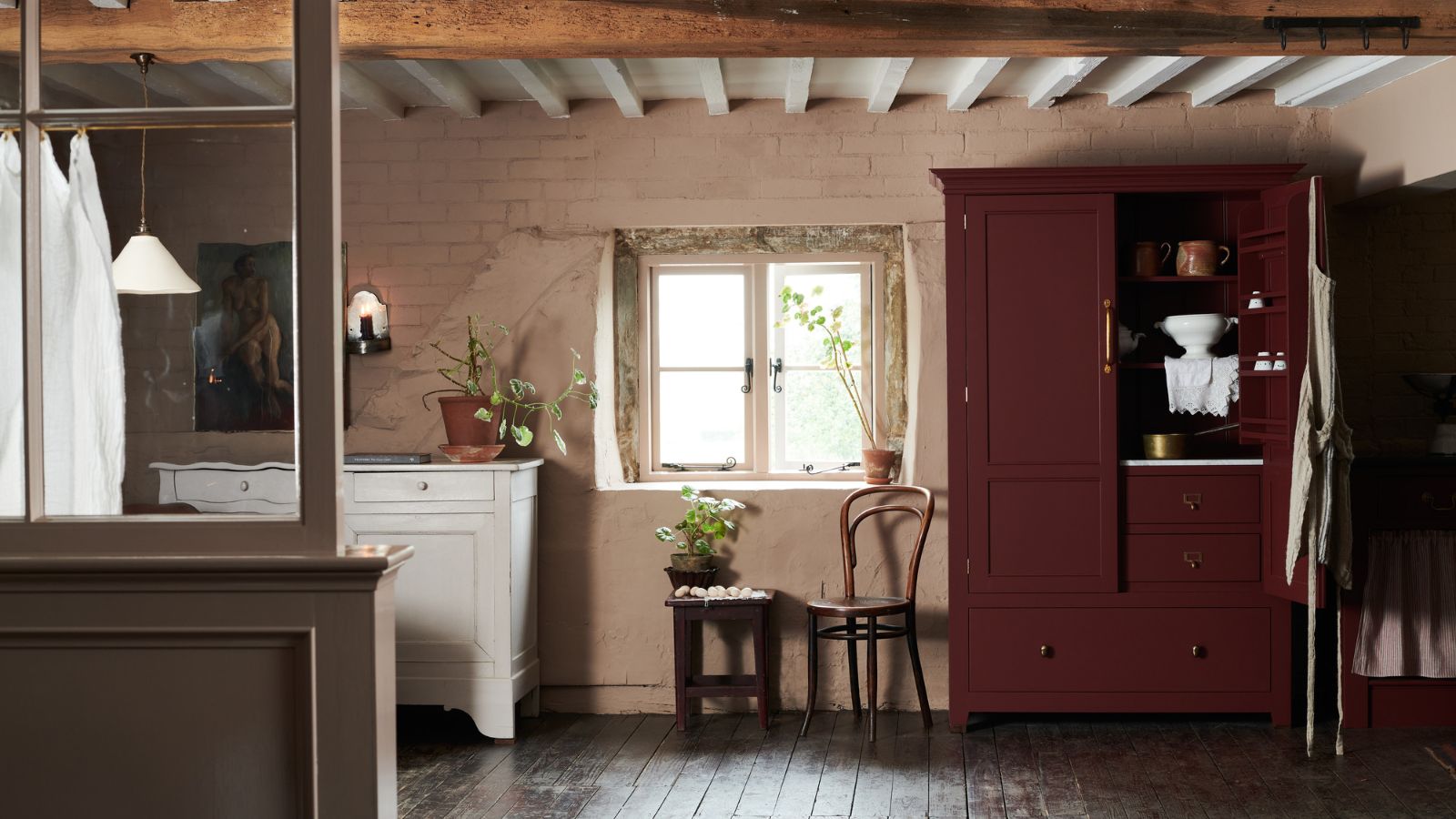 'Wick away the ick' – 6 things people with clean laundry rooms always do to make this hardworking space shine
'Wick away the ick' – 6 things people with clean laundry rooms always do to make this hardworking space shineThese tips on how to clean your laundry room will banish grime
By Seraphina Di Mizzurati
-
 How safe are carpet deodorizers? As a seasoned vacuum tester, I urge you to try alternative methods
How safe are carpet deodorizers? As a seasoned vacuum tester, I urge you to try alternative methodsNatural cleaning is always the answer
By Dan Fauzi
-
 'The world will not end' – 5 cleaning habits to quit for a happier, easier life, and what to do instead
'The world will not end' – 5 cleaning habits to quit for a happier, easier life, and what to do insteadGet your home sparkling, minus the stress
By Ciéra Cree